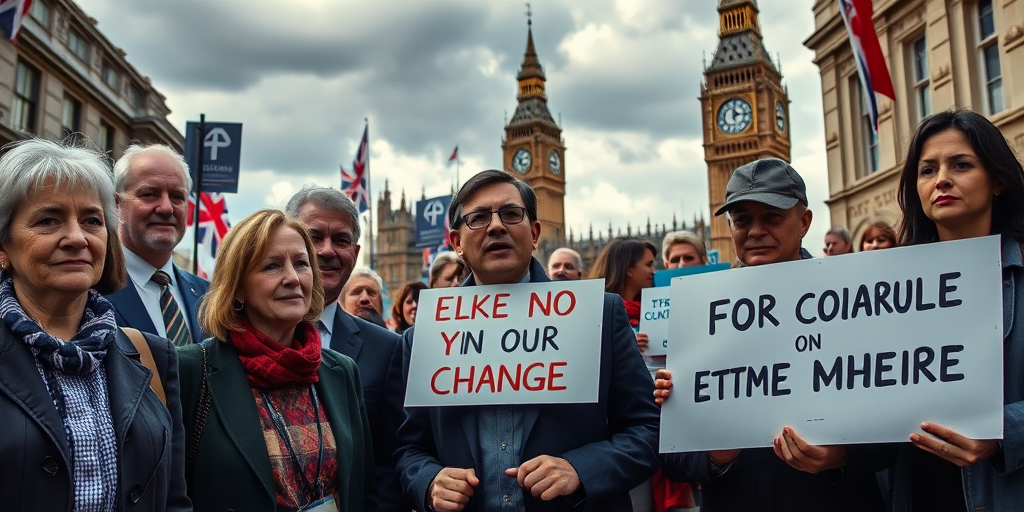Whitehall Rejects Budget Cuts to Diversity Roles Amid Economic Pressure
Whitehall, the central hub of the UK government, has recently made headlines for its decision to retain diversity roles, despite mounting pressures from budget constraints. These roles, critical for promoting inclusivity within governmental operations, have become a focal point of debate, drawing attention from various sectors concerned about representation and fiscal responsibility.
The Importance of Diversity Roles
Diversity roles within public sector agencies such as Whitehall are viewed as vital for ensuring diverse perspectives are considered in decision-making processes. These roles not only work to improve representation and equity but also aim to create a more inclusive and reflective environment of the society the government serves. Inclusion of different viewpoints is thought to contribute greatly to policy development and execution, leading to more comprehensive governmental operations.
Dr. Alex Thompson, a diversity and inclusion expert at the University of London, emphasizes the significance of these roles. “Diversity in government isn’t just a matter of equity; it is about ensuring that all voices are heard and considered in policy-making. It leads to more sustainable and effective policies because they are informed by a range of perspectives,” he explains.
The Community’s Perspective
The impacts of maintaining diversity roles are far-reaching, particularly affecting local communities by fostering environments where varied experiences and identities are acknowledged and valued. This is crucial in multicultural societies where understanding and inclusion can greatly enhance public trust in governmental institutions.
Sarah Renfield, a community leader in East London, expresses local sentiments: “For residents here, having representation in Whitehall means our voices and needs are acknowledged in national debates. Cutting these roles would have far-reaching implications, disengaging communities that already feel marginalised.”
A Balancing Act: Fiscal Responsibility vs. Diversity Commitments
While champions of diversity roles applaud Whitehall’s decision, critics argue that economic realities should prompt a reassessment of resource allocation. As governments face financial strain, questions arise regarding whether funds dedicated to diversity initiatives could be redirected to other pressing needs such as education or healthcare.
Peter Clarke, a fiscal analyst, offers a cautionary perspective: “At a time when every pound of public spending is scrutinized, maintaining roles across the board without examining their cost and impact could mean less funding for critical services. It’s a challenging balancing act.”
Long-term Implications and Benefits
Despite concerns, maintaining diversity roles is anticipated to offer substantial long-term benefits. These include reducing institutional biases, which can contribute to more equitable decision-making processes. Additionally, diversity roles can enhance the public’s trust in government by demonstrating a genuine commitment to reflecting and addressing the needs of all citizens.
Experiences from other sectors support the enduring value of diversity. Research indicates that organizations prioritizing inclusivity perform better financially and organizationally. This suggests that Whitehall’s commitment could result in more adaptive and resilient governance.
Connections to Previous Discussions
The discourse surrounding diversity roles is not new. Similar debates have surfaced in various sectors, reflecting broader societal shifts toward greater inclusivity. These discussions have seen governments and organizations grappling with how to best integrate diversity into their operations without compromising fiscal efficiency.
The challenges of maintaining inclusivity during economic downturns have been previously highlighted in discussions within other national institutions. Such conversations often circle back to finding strategic approaches that uphold core values while adapting to economic demands.
Future Implications for Communities
The ongoing decision to preserve diversity roles in Whitehall indicates an unwavering commitment to inclusivity. For local communities, this decision is more than symbolic; it is a tangible step taken by the government to ensure representation and equity. It underscores the message that diversity is integral to societal progress rather than merely an auxiliary consideration.
In the long run, this decision could inspire other sectors to sustain their diversity efforts, potentially setting a benchmark for balancing inclusivity with financial pragmatism. The challenge remains to continuously evaluate the effectiveness of diversity initiatives, ensuring they meet both immediate and future societal needs.
Resources for Interested Residents
For those interested in understanding or engaging with the ongoing efforts in Whitehall, local government offices and community centers will be organizing informational sessions. These will provide residents the opportunity to learn more about current diversity initiatives and how they can contribute to broadening these conversations.
Ultimately, Whitehall’s decision resonates deeply with Woke News’ ethos of fostering informed dialogue about community interest and resilience, inviting residents to partake in shaping a more inclusive future amidst economic uncertainty.







